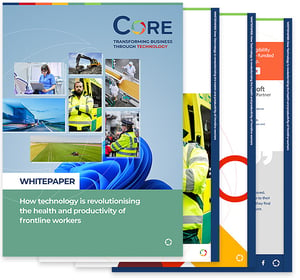As cyber threats become more advanced and widespread, regulators are responding in kind. For UK organisations, 2025 brings a new chapter in compliance—one where security, resilience, and accountability are not just IT concerns, but board-level priorities.
At the heart of this evolution is the NIS2 Directive, a major update to the EU’s cybersecurity regulation that also carries implications for many UK businesses, particularly those operating across borders or supplying essential services.
So, what does this mean in practice—and what should your organisation be doing now to stay ahead?
What is NIS2—and Why Should UK Organisations Care?
NIS2 (the Network and Information Systems Directive) is an expansion of the original NIS framework introduced in 2016. Its goal is simple: to improve cyber resilience across critical sectors. But its scope and expectations are much broader than its predecessor.
Even though the UK is no longer part of the EU, NIS2 still affects:
- UK organisations operating within the EU
- UK-based suppliers to EU essential or important entities
- Companies subject to similar UK regulations, which are expected to evolve in line with NIS2 principles
The directive expands coverage to more sectors (like manufacturing, waste, food, and digital services), introduces stricter reporting timelines, and demands more robust security practices—including supply chain risk management and board-level accountability.
Key Themes in Compliance for 2025
1. Proactive Cyber Resilience
Gone are the days of treating compliance as a checkbox exercise. NIS2, along with the UK’s broader regulatory stance, expects organisations to have mature, proactive security capabilities in place—from incident response planning to regular vulnerability assessments.
2. Supply Chain Transparency
One of the most significant shifts is the focus on third-party risk. It’s no longer enough to secure your own systems—you must understand and manage the risk introduced by vendors, partners, and outsourced IT providers.
3. Board Accountability
Senior leaders are expected to take ownership of cyber security. That includes understanding risk, signing off on controls, and ensuring the right training and oversight are in place. Directors could face penalties for non-compliance under both NIS2 and UK frameworks.
4. Timely Incident Reporting
New reporting obligations are also tougher—requiring incidents to be reported within 24 hours in some cases. This demands clear processes, strong detection tools, and well-practised escalation plans.
Compliance is an Opportunity—Not Just an Obligation
While regulation can feel burdensome, it also presents a strategic opportunity. Your organisation treating compliance as a chance to strengthen your cyber posture, build customer trust, and improve internal processes, will give you a competitive edge.
It’s also a catalyst to review systems, modernise outdated technology, and build a more resilient workplace—especially in a time of hybrid working, AI integration, and increasing cloud reliance.
How We Can Help
We support organisations across the UK in navigating the evolving compliance landscape. That includes helping you:
- Identify gaps against NIS2-aligned best practices
- Strengthen your Microsoft security posture with Defender, Purview, and Entra
- Develop incident response and data governance strategies
- Integrate compliance into your IT roadmap without adding unnecessary complexity
If you're unsure where to begin with NIS2, third-party risk, or security maturity planning, we're here to help.






